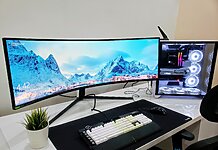Over the past few years, the trend toward smaller and more compact form factors has become stronger and stronger. Small Form Factor (SFF) PCs have been steadily gaining popularity, and the reasons behind their ascent are both numerous and compelling. Combining exceptional performance with functionality, these compact machines are redefining the way we perceive and engage with computing devices. Even gamers are turning to compact, mini-ITX machines when building a PC to satisfy their high-performance needs in a compact frame.
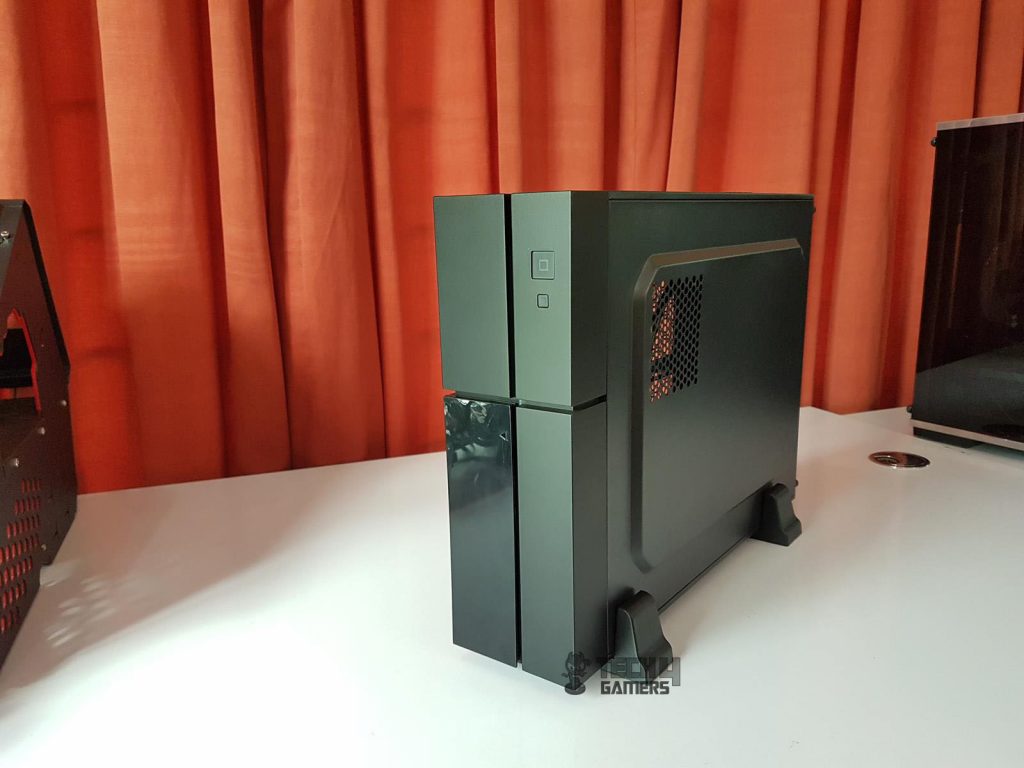
Why Small Form Factor PCs Are So Good
From the bulky desktops of the 1980s to the sleek all-in-ones of the 2000s, the relentless pursuit of smaller, more efficient computing solutions has been a consistent theme in the industry. Here are a few compelling reasons why small-form-factor PCs are so good and why the trend might be returning in 2024.
Mobility and Space Savings
The compact size of Small Form Factor (SFF) PCs is a game-changer when it comes to mobility and space efficiency. Whether you are a student living in a dorm, a professional with a confined working area, or an individual who just likes a minimalistic setup, SFF PCs offer unparalleled convenience. Their diminutive form factor also allows for easy portability, fitting seamlessly into backpacks or travel bags. In real-life scenarios, these machines excel in cramped workspaces where every square inch matters, and their adaptability shines in various practical instances, ensuring you’re not tethered to a bulky desktop.
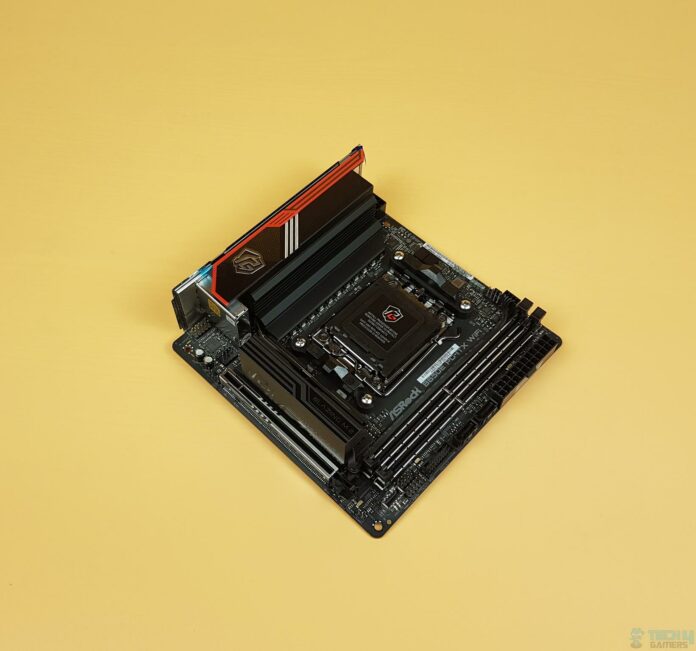
Moreover, the rise of remote work and the increasing prevalence of co-working spaces make SFF PCs the ideal companion for those constantly on the move. The marriage of power and efficiency in SFF PCs is reshaping the way we think about computing, proving that you can have a high-performance machine even in a compact frame.
Improvements in Efficiency
Technological advancements, particularly in miniaturization, are at the core of the SFF PC revolution. The components powering these compact machines have undergone significant development, becoming smaller, more energy-efficient, and boasting reduced power consumption. This technological evolution has propelled modern SFF PCs to rival, and in some cases, surpass traditional desktops in terms of performance capabilities, depending on their internals. The once-established notion that larger systems inherently equate to more powerful machines is being challenged, marking a paradigm shift in how we perceive the relationship between size and power in computing.
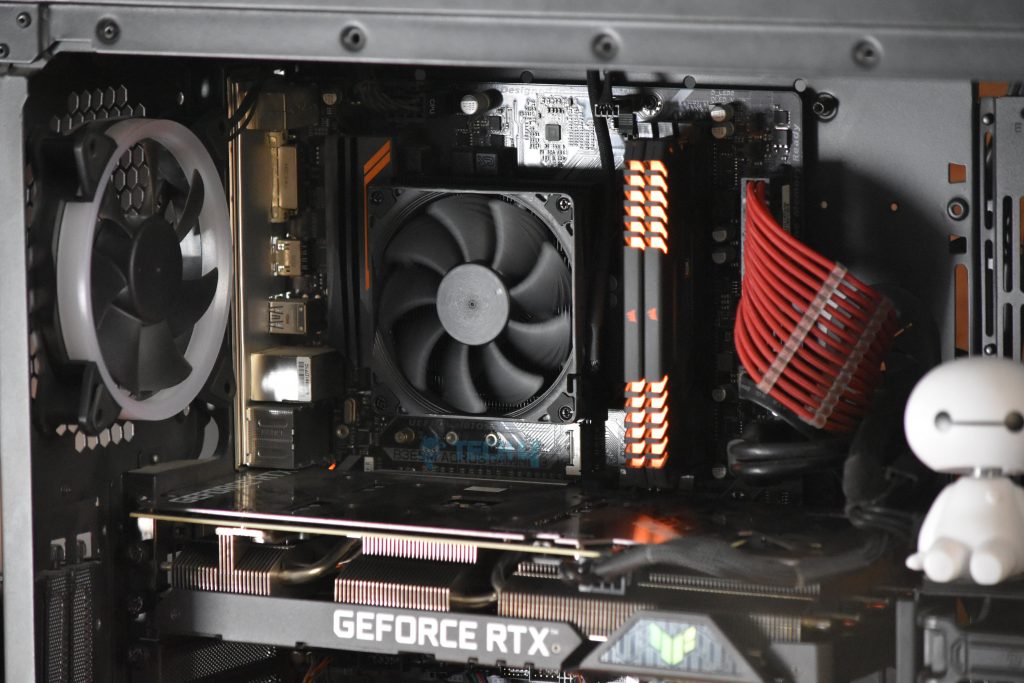
The transformation is not limited to just size; it extends to the efficiency and capabilities of these miniature powerhouses. Components designed for SFF PCs are now engineered with a focus on optimizing space without compromising performance. This not only benefits users seeking compact solutions but also contributes to a more sustainable and eco-friendly computing landscape. As technology continues to advance, the gap between traditional desktops and SFF PCs will likely narrow further, solidifying the latter’s position as a viable and powerful computing option for a diverse range of users.
Gaming on a Small Scale
The gaming community, notorious for its appetite for high-performance machines, has enthusiastically embraced the compact charm of SFF PCs over the past few years. The advent of compact gaming setups, driven by remarkable advancements in graphics processing within the SFF realm, has led gamers to rethink the necessity of massive gaming rigs. Gamers are increasingly gravitating towards smaller form factors, enticed by the promise that size no longer limits gaming performance.
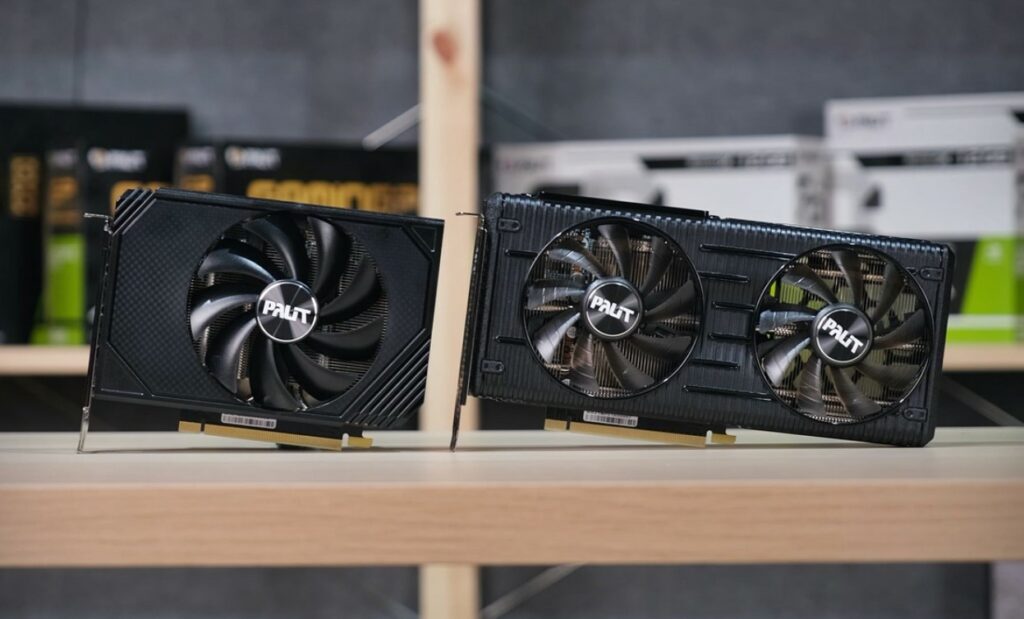
Graphics processing units (GPUs), the lifeblood of gaming machines, are now available as low-profile graphics cards, challenging the conventional belief that larger GPUs equate to superior performance. This shift in the gaming landscape is not just about space efficiency; it’s a testament to the relentless pursuit of performance optimization within constrained dimensions. Compact gaming setups powered by SFF PCs are becoming the weapon of choice for gamers who seek a balance between immersive gaming experiences and a clutter-free living space.
Customization For DIY Enthusiasts
The allure of building custom SFF PCs has become a driving force behind their popularity, attracting a vibrant community of DIY enthusiasts. The availability of a wide array of components tailored for customization allows enthusiasts to craft machines that align precisely with their specific needs and preferences. From choosing the perfect mini-ITX motherboard form factor to selecting a power-efficient but powerful CPU, every aspect of the build becomes a personalized journey.
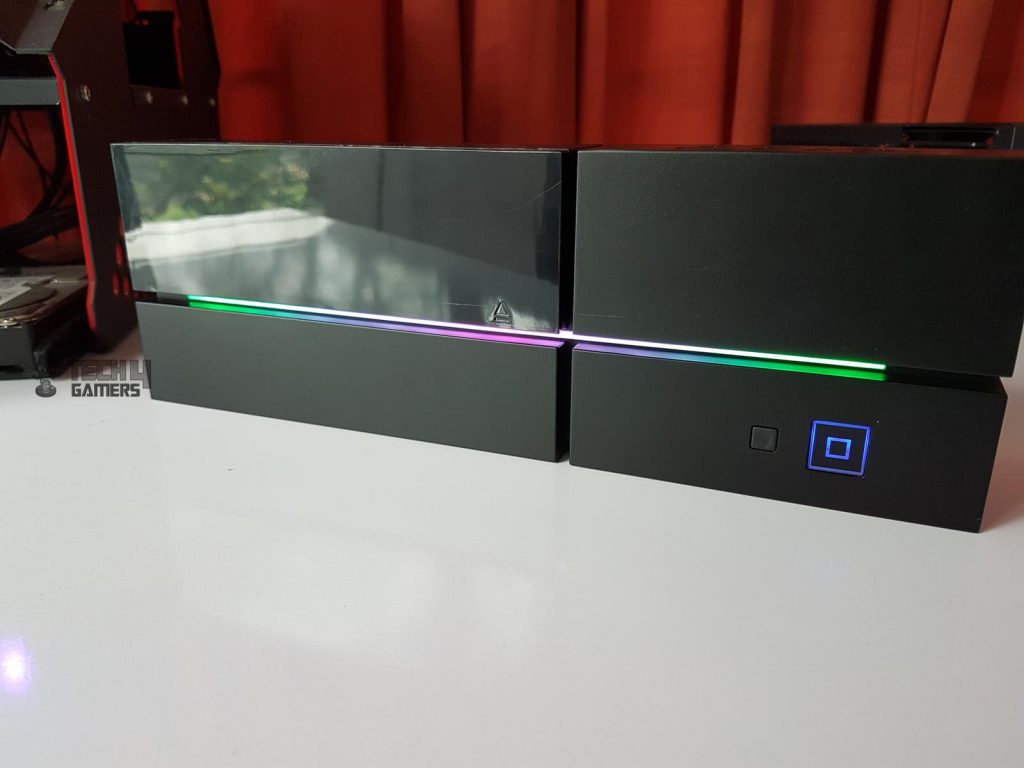
Online communities and forums dedicated to SFF PC building play a crucial role in fostering this passion. Enthusiasts share their experiences and troubleshooting tips and showcase their unique builds, creating a sense of camaraderie among SFF PC builders. The culture of customization not only adds a personal touch to computing but also contributes to a diverse ecosystem of SFF PCs, each a testament to the creativity and technical prowess of its builder. The rise of DIY SFF PCs is not just a trend; it’s a movement that celebrates the artistry and individuality of computing.
Challenges of Small Form Factor PCs
While the advantages of SFF PCs are numerous, they are not without their set of challenges.
- Cooling solutions in small form factor cases present a significant hurdle, as the compact design limits the space available for effective heat dissipation. This can result in higher temperatures, potentially limiting the overall performance of these machines. The challenge is not only to create efficient cooling solutions but also to strike a delicate balance between size and thermal management.
- Another potential hurdle lies in the upgradeability of SFF PCs. The compact design often leaves little room for expansion, limiting the options for users who wish to upgrade their systems with newer components. Balancing performance and size constraints can be a delicate act, requiring meticulous engineering to ensure that users can enjoy both a compact form factor and the power they desire.
- Additionally, the relative scarcity of components designed specifically for small form factor cases contributes to the higher price tags of SFF PCs. The low volume production and high research and development costs associated with creating components tailored for these compact systems result in a less cost-effective solution compared to traditional desktops. Addressing these challenges is crucial for the continued growth and widespread adoption of SFF PCs.
The Future of Small Form Factor PCs
Despite the challenges, the future of SFF PCs is undeniably promising. Continued growth and innovation in the industry are anticipated, driven by the integration of emerging technologies. One of the key areas of development will likely be in more efficient cooling solutions for compact PC cases. As the demand for powerful SFF PCs grows, so too will the need for effective thermal management systems that can maintain optimal performance without sacrificing size.
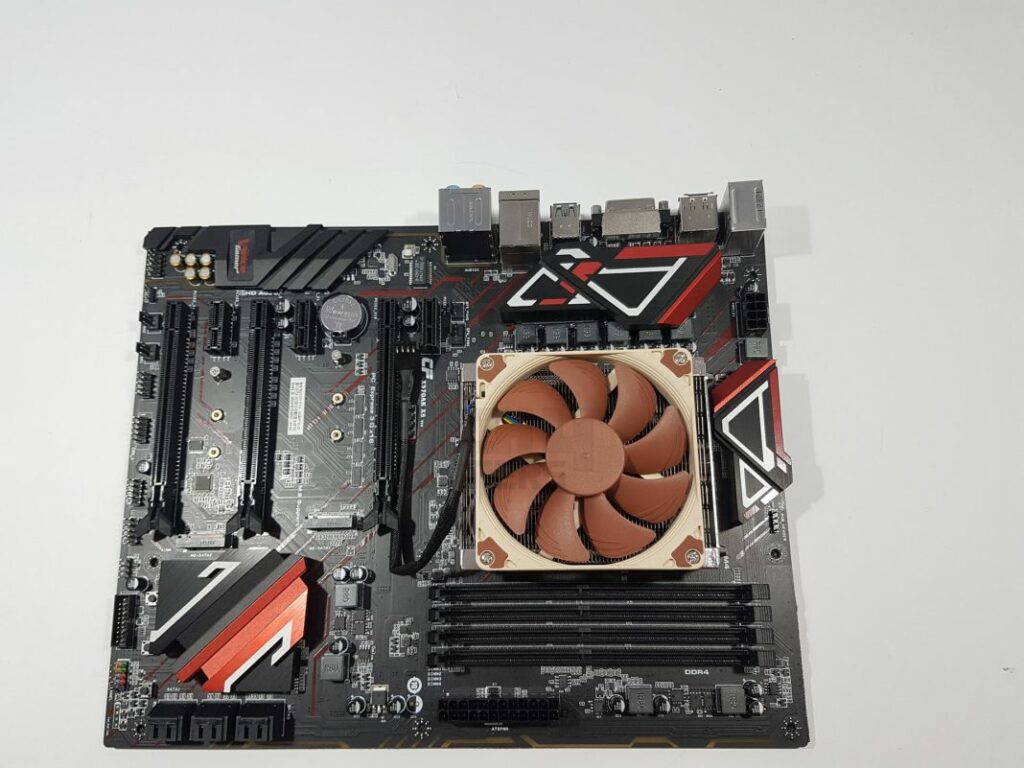
Advancements in component miniaturization will also play a pivotal role in shaping the future of SFF PCs. As technology continues to evolve, we can expect even smaller yet more powerful components that push the boundaries of what is currently possible. The industry’s ability to find solutions to the challenges of cooling, upgradeability, and cost will determine the trajectory of SFF PCs in the years to come.
However, the key to the future of SFF PCs lies in striking a delicate balance between pushing the boundaries of size reduction and maintaining optimal performance. It’s not just about making PCs smaller; it’s about making them smarter, more efficient, and capable of meeting the diverse needs of users across different domains.
Bottom Line
The enduring appeal of Small Form Factor PCs is grounded in their ability to merge excellent performance with unmatched functionality. SFF PCs have carved a distinctive niche in the computing landscape, and while challenges still exist, the continuous innovation in technology suggests a bright future for these diminutive powerhouses.
So, should you build a Small Form Factor PC? If the prospect of a high-performance, efficient, portable, and customizable computing experience aligns with your needs and preferences, the answer is a resounding yes. The journey towards smaller, smarter, and more powerful computing is well underway, and compact PCs are at the forefront of this exciting evolution.
Thank you! Please share your positive feedback. 🔋
How could we improve this post? Please Help us. 😔
[Reviews Specialist]
Usman Saleem brings 8+ years of comprehensive PC hardware expertise to the table. His journey in the tech world has involved in-depth tech analysis and insightful PC hardware reviews, perfecting over 6+ years of dedicated work. Usman’s commitment to staying authentic and relevant in the field is underscored by many professional certifications, including a recent one in Google IT Support Specialization.
8+ years of specialized PC hardware coverage
6+ years of in-depth PC hardware analysis and reviews
Lead PC hardware expert across multiple tech journalism platforms
Certified in Google IT Support Specialization
Get In Touch: usman@tech4gamers.com




